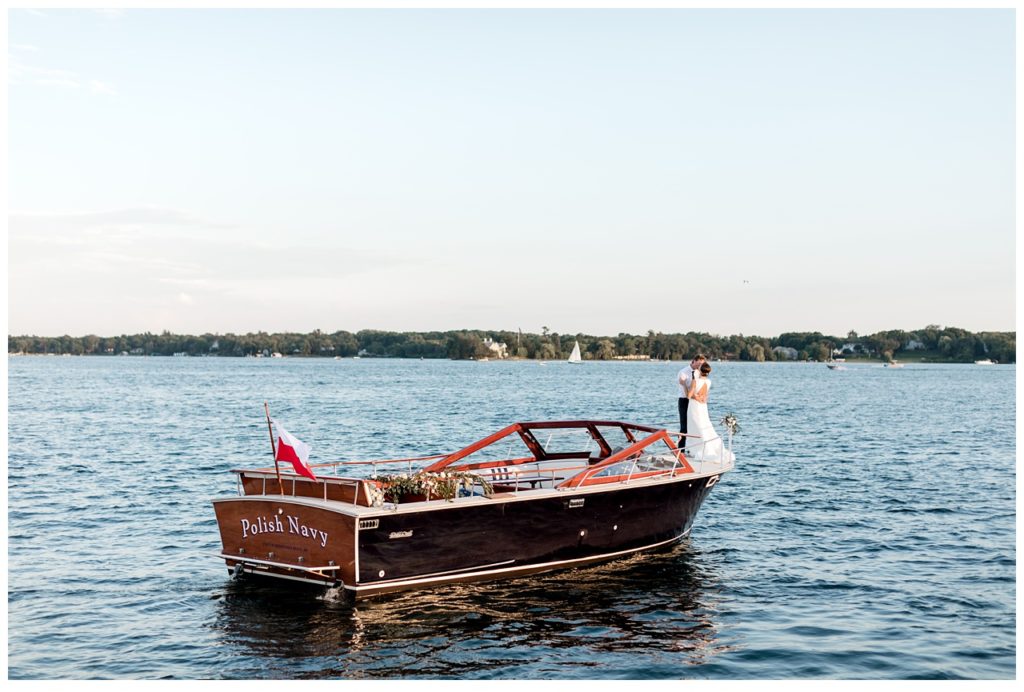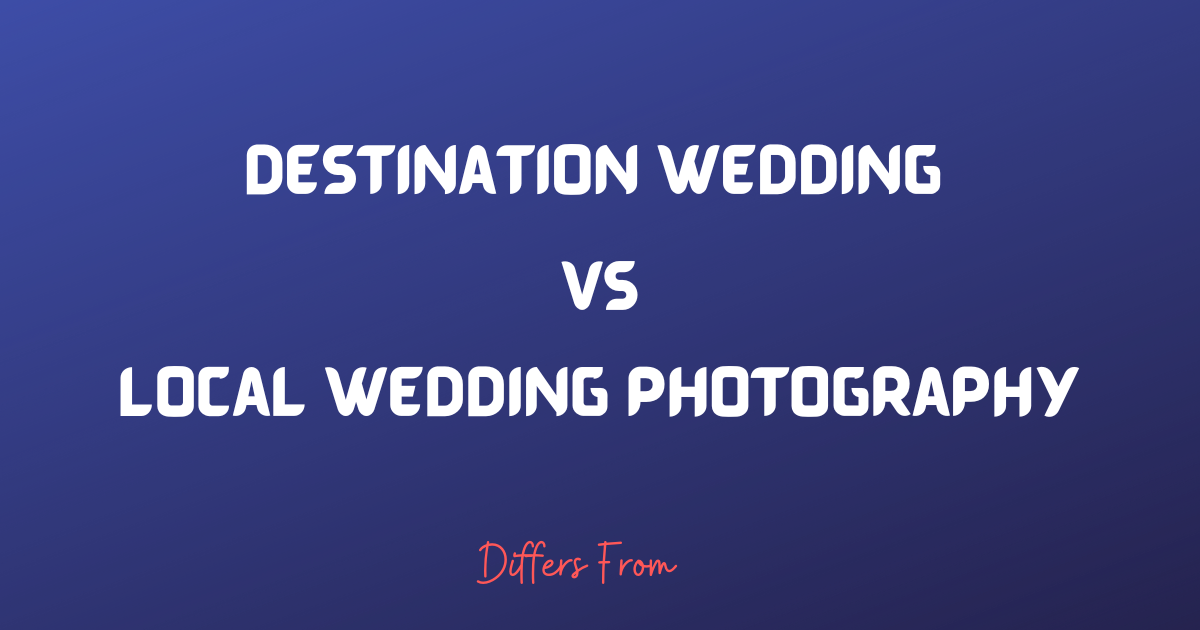Your wedding day is one of the most significant moments in your life, and capturing it through beautiful photography is essential. As you plan your big day, one of the crucial decisions you’ll face is whether to opt for destination wedding photography or stick with local wedding photography. Both options have their unique charm and challenges, and the choice you make can significantly impact your wedding memories and overall experience.
Destination wedding photography involves traveling to a location away from your hometown or current residence for your wedding and hiring a photographer to capture the event in that picturesque setting. On the other hand, local wedding photography refers to having your wedding in or near your hometown and hiring a local photographer familiar with the area.
In this comprehensive guide, we’ll explore the pros and cons of both destination and local wedding photography, helping you make an informed decision that aligns with your vision, budget, and preferences. We’ll delve into the various factors to consider, offer tips for both options, and discuss current trends in the wedding photography industry.
Comparison Table: Destination vs Local Wedding Photography
To give you a quick overview, here’s a comparison table highlighting the key differences between destination and local wedding photography:
| Aspect | Destination Wedding Photography | Local Wedding Photography |
| Location | Exotic or dream location | Familiar local setting |
| Cost | Generally higher due to travel expenses | Usually more affordable |
| Planning Complexity | More complex, requires extensive planning | Simpler, easier to coordinate |
| Guest Attendance | May have fewer guests due to travel | Typically allows for larger guest list |
| Photographer Familiarity | May be unfamiliar with the location | Knows local venues and lighting conditions |
| Duration | Often multi-day events | Usually a single-day event |
| Cultural Experience | Opportunity for unique cultural elements | Reflects local traditions and customs |
| Logistics | More challenging (travel, accommodations) | Easier to manage |
| Weather Considerations | May face unpredictable weather | More predictable local climate |
| Legal Requirements | May involve international paperwork | Simpler legal process |
Destination Wedding Photography
Advantages
1. Breathtaking Backdrops: One of the most significant advantages of destination wedding photography is the opportunity to capture your special day against stunning and unique backdrops. Whether it’s a tropical beach, a historic European castle, or a serene mountain landscape, destination weddings offer unparalleled scenic beauty that can elevate your wedding photos to works of art.
2. Intimate Atmosphere: Destination weddings often result in a more intimate gathering of close friends and family. This can lead to more relaxed and candid moments, allowing your photographer to capture genuine emotions and interactions.
3. Extended Celebration: Many destination weddings span multiple days, giving your photographer more opportunities to document not just the ceremony, but also pre-wedding events, group activities, and post-wedding celebrations.
4. Unique Cultural Elements: Incorporating local customs and traditions into your wedding can add a fascinating dimension to your photos, creating a truly one-of-a-kind visual story.
5. Built-in Honeymoon: Many couples choose to extend their stay at the destination for their honeymoon, allowing for additional romantic photos in a beautiful setting.
Challenges
1. Unfamiliarity with Location: Unless you hire a local photographer at your destination, your chosen photographer may be unfamiliar with the location, which can present challenges in terms of finding the best spots and understanding local lighting conditions.
2. Weather Uncertainties: Depending on the destination, you may face unpredictable weather conditions that can affect outdoor photo sessions.
3. Equipment Limitations: Traveling with photography equipment can be challenging, and some locations may have restrictions on professional photography gear.
4. Communication Barriers: If you’re in a country where you don’t speak the language, coordinating with local vendors and navigating the area can be difficult.
Cost Considerations
Destination wedding photography typically comes with a higher price tag due to several factors:
1. Travel Expenses: You’ll need to cover the photographer’s travel costs, including flights, accommodation, and meals.
2. Extended Coverage: Most destination weddings require the photographer to be present for multiple days, increasing the overall cost.
3. Equipment Transport: There may be additional costs for safely transporting expensive camera gear.
4. Potential for Additional Staff: Some photographers may bring an assistant or second shooter, adding to the expenses.
Planning and Logistics
Planning a destination wedding requires meticulous organization:
1. Research Local Regulations: Understand any permits or restrictions for photography at your chosen location.
2. Timeline Planning: Factor in travel time, jet lag, and time for the photographer to scout locations.
3. Backup Plans: Have contingency plans for weather issues or unexpected challenges.
4. Vendor Coordination: Work closely with your wedding planner and local vendors to ensure smooth coordination with your photographer.
For a comprehensive checklist to help you plan your destination wedding, including photography considerations, check out this helpful resource: Destination Wedding Planning Checklist

Photo credit: Alexandra Robyn Photo + Design
Local Wedding Photography
Advantages
1. Familiarity with Venues: Local photographers often have extensive experience with popular wedding venues in the area, knowing the best spots for photos and understanding the lighting conditions.
2. Ease of Planning: Coordinating with a local photographer is generally easier, allowing for in-person meetings and venue visits before the wedding day.
3. Local Connections: Established local photographers often have good relationships with other wedding vendors, which can lead to smoother coordination on the day.
4. Cost-Effective: Without travel expenses, local wedding photography is usually more affordable than destination options.
5. Comfort for Guests: Local weddings are more convenient for guests, potentially allowing for a larger attendance and more familiar faces in your photos.
Challenges
1. Limited Scenic Variety: Depending on your location, you may have fewer options for dramatically scenic backdrops compared to destination weddings.
2. Potential for Repetition: If you choose a popular local venue, your photos might be similar to those of other couples who’ve married there.
3. Weather Constraints: Local climate patterns may limit your options, especially if you live in an area with harsh winters or rainy seasons.
4. Less “Vacation” Feel: Local weddings might not provide the same sense of escape and adventure that destination weddings offer.
Cost Considerations
While generally more affordable, local wedding photography costs can vary:
1. Experience and Demand: High-end local photographers in popular wedding destinations can command premium prices.
2. Package Options: Local photographers often offer a range of packages to suit different budgets and needs.
3. Add-ons: Consider costs for engagement shoots, bridal portraits, or additional coverage hours.
4. Print and Album Costs: Factor in the expenses for high-quality prints and wedding albums.
Planning and Logistics
Planning for local wedding photography involves:
1. Venue Scouting: Visit potential locations with your photographer to plan shot lists and discuss lighting.
2. Timeline Creation: Work with your photographer to create a detailed timeline for the wedding day.
3. Family Photo Coordination: Plan for efficient family and group photos, especially if you have a large guest list.
4. Backup Location Planning: Have indoor options ready in case of inclement weather.
Factors to Consider When Choosing
When deciding between destination and local wedding photography, consider the following factors:
Budget
1. Overall Wedding Costs: Determine how much of your total budget you can allocate to photography.
2. Value Assessment: Consider the long-term value of your wedding photos and how much you’re willing to invest in them.
3. Hidden Costs: Factor in potential additional expenses for both options, such as travel insurance for destination weddings or overtime fees for local photographers.
Guest List and Travel Considerations
1. Guest Preferences: Consider your guests’ ability and willingness to travel for a destination wedding.
2. Elderly or Young Guests: Think about the needs of older family members or guests with young children.
3. Group Dynamics: Assess how a destination or local wedding might affect the overall guest experience and group photos.
Personal Preferences and Style
1. Wedding Vision: Align your choice with your overall wedding theme and vision.
2. Photography Style: Determine whether you prefer candid, documentary-style photos or more posed, formal shots.
3. Cultural Elements: Consider how important it is to incorporate specific cultural or traditional elements into your photos.
Time Constraints
1. Planning Time: Evaluate how much time you have to plan – destination weddings often require more lead time.
2. Wedding Date Flexibility: Determine if you’re flexible with your wedding date to accommodate peak seasons at your desired destination.
3. Work and Life Commitments: Consider how much time you can take off for a destination wedding and associated travel.
Tips for Destination Wedding Photography
Researching and Hiring Photographers
1. Portfolio Review: Thoroughly examine potential photographers’ portfolios, focusing on their destination wedding work.
2. Reviews and Recommendations: Seek out reviews from other couples who’ve had destination weddings at your chosen location.
3. Interview Process: Conduct video calls with potential photographers to assess their personality and communication style.
4. Local vs. Traveling Photographer: Weigh the pros and cons of hiring a local photographer at your destination versus bringing one from your home area.
Communication and Contracts
1. Clear Expectations: Clearly communicate your vision, must-have shots, and any specific cultural considerations.
2. Detailed Contracts: Ensure all agreements, including travel arrangements and contingency plans, are clearly outlined in the contract.
3. Regular Check-ins: Schedule periodic check-ins leading up to the wedding to discuss any updates or changes.
Equipment and Backup Plans
1. Equipment List: Discuss with your photographer what equipment they’ll bring and any rental needs at the destination.
2. Backup Gear: Ensure your photographer has backup cameras, lenses, and storage devices.
3. Insurance: Verify that your photographer has appropriate insurance coverage for international work.
Cultural Considerations
1. Local Customs: Research and inform your photographer about any cultural norms or sensitivities at your destination.
2. Language Barriers: Consider hiring a local assistant or translator if there are significant language barriers.
3. Permit Requirements: Investigate any special permits needed for photography at your chosen location.
For more insights on planning destination weddings, including photography considerations, the Wedding Wire offers excellent resources and tips.
Tips for Local Wedding Photography
Finding the Right Local Photographer
1. Style Match: Look for a photographer whose style aligns with your vision for your wedding photos.
2. Experience Level: Consider the photographer’s experience with your specific venue or similar types of local weddings.
3. Personality Fit: Choose a photographer whose personality meshes well with yours, as you’ll be spending a significant amount of time together on your wedding day.
Utilizing Local Knowledge and Connections
1. Venue Familiarity: Take advantage of your photographer’s knowledge of local venues and hidden gem locations for photos.
2. Vendor Relationships: Ask if your photographer can recommend other local vendors they work well with.
3. Weather Expertise: Benefit from your photographer’s understanding of local weather patterns and how to work with them.
Scheduling and Flexibility
1. Engagement Shoot: Consider scheduling an engagement shoot with your local photographer to get comfortable in front of the camera.
2. Flexible Timing: Discuss options for optimal lighting conditions, including potential sunset or “golden hour” shots.
3. Multiple Locations: If desired, plan for photos at multiple local spots that are meaningful to you as a couple.
Incorporating Local Elements
1. Iconic Landmarks: Include well-known local landmarks or scenery in your photos for a sense of place.
2. Seasonal Beauty: Take advantage of local seasonal elements, such as cherry blossoms in spring or fall foliage.
3. Personal History: Incorporate locations that are significant to your relationship story.
Trends in Destination and Local Wedding Photography
Popular Destination Wedding Locations
1. Tropical Paradises: Places like Bali, the Maldives, and the Caribbean continue to be popular for their pristine beaches and luxurious resorts.
2. European Charm: Historic cities like Paris, Rome, and Prague offer romantic backdrops for wedding photos.
3. Adventure Destinations: Locations like Iceland, New Zealand, and Costa Rica are gaining popularity for couples seeking unique and dramatic landscapes.
Emerging Local Wedding Photography Styles
1. Urban Chic: Incorporating city landscapes and street art for a modern, edgy feel.
2. Rustic Elegance: Leveraging local barns, vineyards, and natural settings for a more relaxed vibe.
3. Industrial Glam: Using converted warehouses and loft spaces for a trendy, contemporary look.
Technology and Its Impact
1. Drone Photography: Aerial shots are becoming increasingly popular for both destination and local weddings.
2. Virtual Reality: Some photographers are experimenting with 360-degree cameras to create immersive wedding experiences.
3. Live Streaming: Incorporating live streaming for guests who can’t attend in person, especially relevant for destination weddings.
For more information on the latest wedding photography trends, including both destination and local styles, check out this comprehensive guide from Brides.
Making the Final Decision
Weighing Pros and Cons
1. Create a List: Write down the pros and cons of both destination and local wedding photography based on your specific circumstances.
2. Prioritize Factors: Identify which aspects are most important to you (e.g., cost, guest experience, unique photos).
3. Long-term Perspective: Consider how you want to remember your wedding day in the years to come.
Consulting with Your Partner
1. Open Discussion: Have an honest conversation with your partner about both of your preferences and concerns.
2. Compromise: Be willing to find middle ground if you have differing opinions.
3. Shared Vision: Ensure that your final decision aligns with your shared vision for your wedding day.
Trusting Your Instincts
1. Emotional Connection: Pay attention to your emotional response when imagining your wedding in different settings.
2. Gut Feeling: Sometimes, your intuition can guide you towards the right decision.
3. Excitement Factor: Choose the option that genuinely excites you and your partner.
Conclusion
Choosing between destination and local wedding photography is a significant decision that can shape the memories of your special day. Both options offer unique advantages and challenges, and the right choice depends on your personal preferences, budget, and overall wedding vision.
Destination wedding photography provides the allure of exotic locations, intimate gatherings, and the opportunity for truly unique photos. However, it comes with higher costs, more complex planning, and potential logistical challenges. On the other hand, local wedding photography offers familiarity, ease of planning, and often more affordable options, but may lack the ‘wow’ factor of a destination backdrop.
Remember, regardless of whether you choose a far-flung destination or a cherished local spot, the most important aspect is that your wedding photos capture the love, joy, and emotions of your special day. By carefully considering the factors we’ve discussed, communicating clearly with your chosen photographer, and staying true to your vision, you can ensure that your wedding photos will be treasured keepsakes for years to come.
Ultimately, the decision between destination and local wedding photography should reflect your unique story as a couple. Whether you’re exchanging vows on a tropical beach or in your hometown’s historic church, what matters most is the love you’re celebrating and the memories you’re creating.

